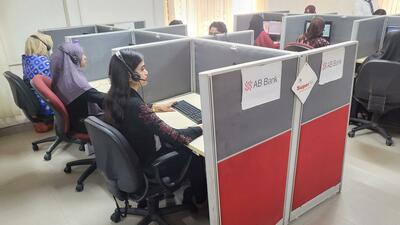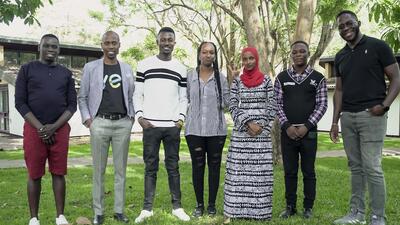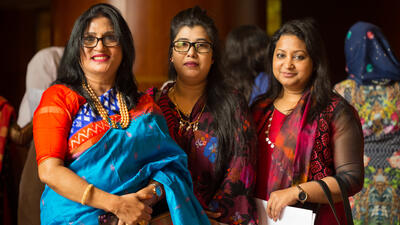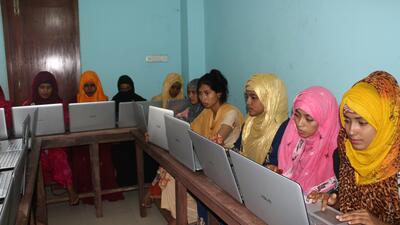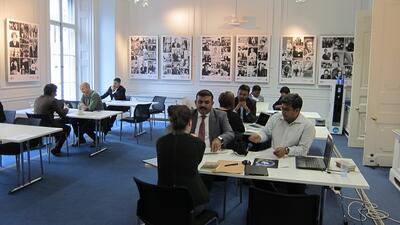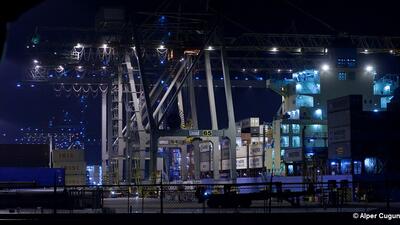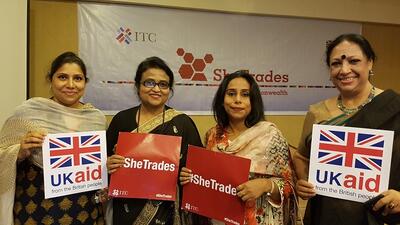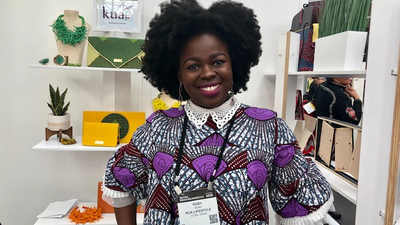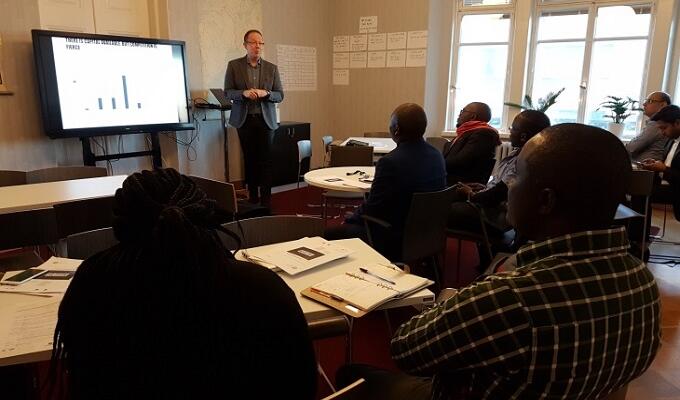
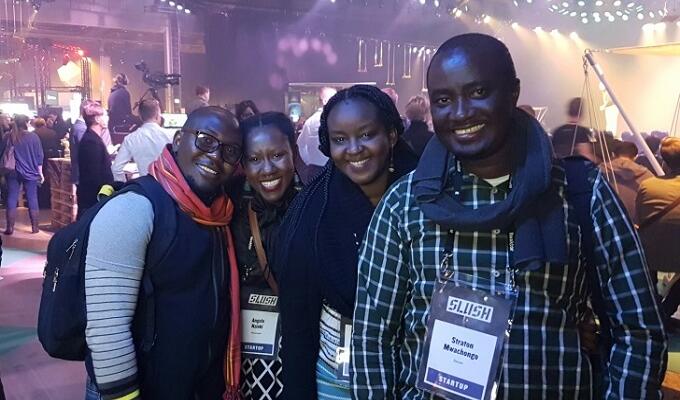
Finnish investor event Slush energizes East African, Bangladeshi IT start-ups
Finland’s annual start-up and investor event Slush takes place during the darkest time of the year in Helsinki, but the short days of winter cast no pall over the 10 East African and Bangladeshi technology companies that recently attended the event through the Netherlands Trust Fund III (NTF III) programme.
The International Trade Centre (ITC) sponsored the companies – two information technology (IT) start-ups from Bangladesh as well as two each from the United Republic of Tanzania and Uganda, one from Rwanda and three from Kenya, plus the chief executive of Kenyan IT sectoral association KITOS – to encourage innovation and to trigger partnerships.
A project funded by the Government of Finland also sponsored four of the East African start-ups that attended Slush. All 10 companies were selected through a competitive process organized by ITC as part of NTF III, which is implemented in collaboration with the Centre for the Promotion of Imports from developing countries (CBI) and funded by the Dutch Government.
Finland’s annual start-up and investor event Slush takes place during the darkest time of the year in Helsinki, but the short days of winter cast no pall over the 10 East African and Bangladeshi technology companies that recently attended the event through the Netherlands Trust Fund III (NTF III) programme.
The International Trade Centre (ITC) sponsored the companies – two information technology (IT) start-ups from Bangladesh as well as two each from the United Republic of Tanzania and Uganda, one from Rwanda and three from Kenya, plus the chief executive of Kenyan IT sectoral association KITOS – to encourage innovation and to trigger partnerships.
A project funded by the Government of Finland also sponsored four of the East African start-ups that attended Slush. All 10 companies were selected through a competitive process organized by ITC as part of NTF III, which is implemented in collaboration with the Centre for the Promotion of Imports from developing countries (CBI) and funded by the Dutch Government.
Some 17,500 people, including 2,300 startups and 1,100 venture capitalists, attended the two-day event that began on 30 November. The 10 ITC-sponsored start-ups had many opportunities to explore potential investment opportunities and innovative partnerships, and to learn more about exporting to European countries.
The event – touted as the biggest start-up and investor event in Europe – also enabled them to meet with peers to build their understanding of the digital sector, strengthen their vision of the start-up world’s evolution and attend conferences directly linked to their business.
‘Slush was a great opportunity to meet potential partners, to learn new ideas to improve my offering, and to identify potential investment partners and venture funding,’ said Grace Achire, chief executive of Uganda’s Vantage Communications.
Before flying to Helsinki, Achire and other entrepreneurs booked meetings – an average of three per start-up – with potential investors. This was done through an online matchmaking platform made available by Slush. The day before Slush began, a Finnish consultant coached them on how to sell their concepts and business plans to maximize their chances of attracting investment.
Achire scheduled four meetings during Slush, and two of those may lead to partnerships with a Finnish University and Structured Data Systems, a Bangladeshi NTF III beneficiary that provides specialized software engineering and research services to international companies. Achire also participated in a pitching session that showed her how to redefine her business plan and better present Vantage to potential investors.
Slush enabled Wilberforce Seguton, chief executive of Nairobi-based Bunifu, to glean information about exporting his company’s mobile, desktop, web and engineering solutions and tools to Germany. Seguton met with an executive from a German company and plans to follow up with representatives he met from Bangladesh’s W3 Engineers and the Finnish Fund for Industrial Cooperation.
‘Participating allowed me to gain exposure to the start-up scene in Europe, understand the latest trends, create new networks and business connections – including with potential investors – as well as identify areas of partnership with other start-up companies,’ he said.
Valerian Sanga, an engineer at STICLab, said his experiences in Helsinki not only brought the Dar es Salaam-based start-up a potential partner, but they also gave him a new outlook on the IT sector.
‘Slush has truly changed my way of thinking and perspective as a whole with respect to innovation and technology,’ he said.
Sanga visited the office of a Finnish high-tech start-up and learned how 3D printing technology can be applied in the education sector. The company’s work is similar to that of STICLab, which has developed machines ranging from coin-based water dispensers and recycled 3D printers to solar-powered ‘Queen Maker’ beehives. The two companies are now exploring a possible collaboration on 3D print filament recycling.
Bangladesh’s W3 Engineers left Slush with a potential new client, said Chief Executive AKM Rakibul Islam, who called it a ‘great event’ that offers a more welcoming environment to establish business relationships than similar expos. He met with some entrepreneurs at a network dinner on his first day in Helsinki, and then met them several times afterwards at parties organized by Slush.
‘My biggest takeaway was meeting a start-up company that is seeking strategic investment and outsourcing opportunities,’ Islam said. ‘We are now helping them to make their mobile app and website’.
One of the highlights for Angela Nzioki, the country manager of Pluspeople Kenya, an IT company in the financial inclusion sector, were the presentations at the Founder Stage. That’s because ‘the presenters humanized the entrepreneurship process, the funding processes and the challenges that entrepreneurs go through’, she said. ‘In a sense, [this] gave me a look into the side that people don’t talk about – that entrepreneurship is not easy and that you have to keep the fire burning and have to keep innovating and, above all, that I am not alone.’





